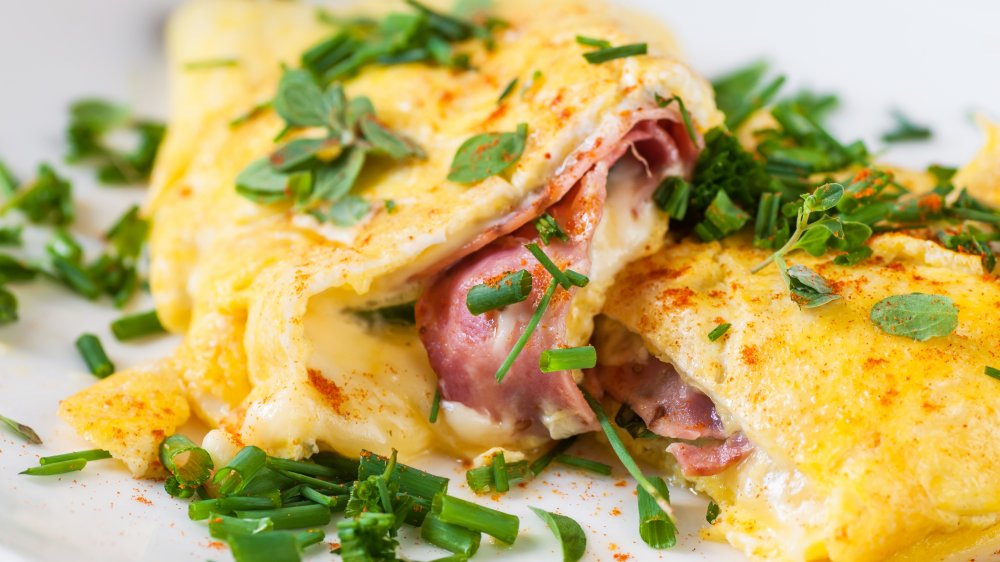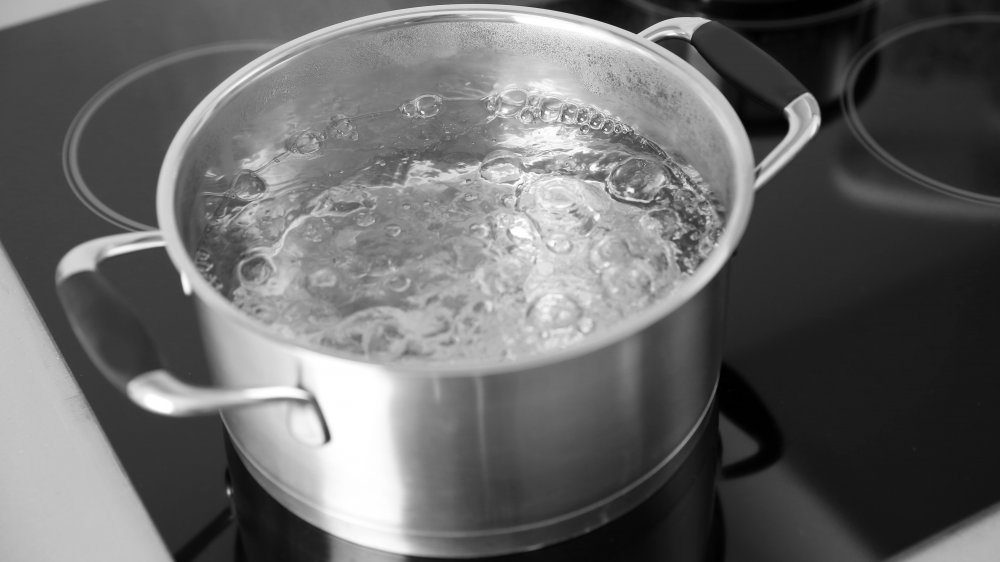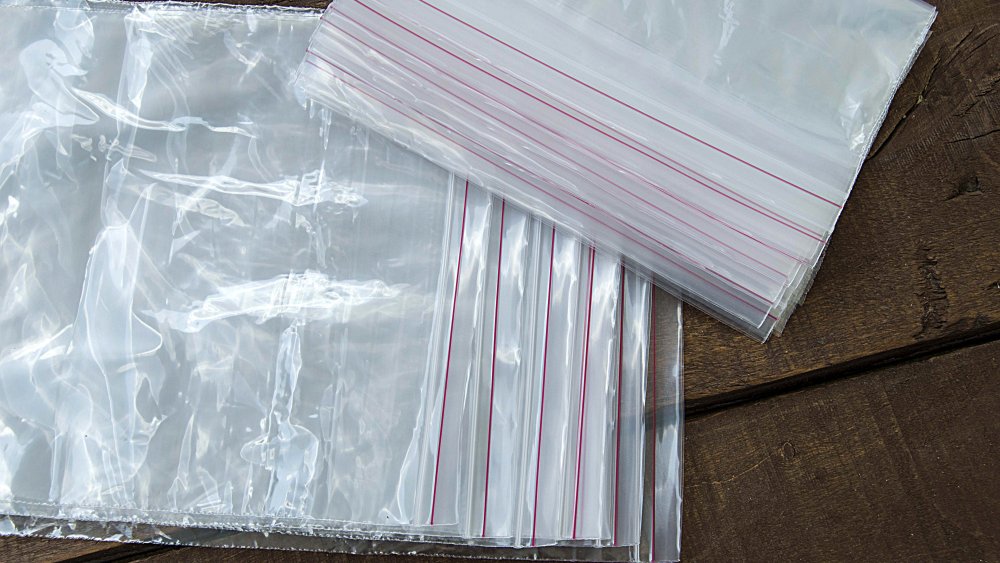This Omelet Hack Is More Dangerous Than You Realized
Described by Insider as the best omelet hack they've ever seen, using the sous vide method (aka boiling in a bag) to make an omelet seems pretty straightforward. According to this hack, all you need for perfect omelets is a pot of boiling water, your ingredients, and a sealable plastic bag. Simply crack a few eggs into the bag with your other ingredients, seal, shake, and boil for 12 to 15 minutes — et voilà! Perfect, evenly cooked omelets without any flipping or rolling and virtually no cleanup. What's even better is you can cook multiple omelets using this method simultaneously with customized ingredients for each person. Brunch for a crowd has (supposedly) never been this easy!
If this seems too good to be true, that's because it kind of is. While everyone does love a time-saving and stress-relieving hack, please be careful when attempting this popular cooking method. It is not as hands-off as it seems, and there are a few serious safety concerns that come with boiling food in plastic bags.
You can't actually use boiling water with most plastic bags
According to Our Everyday Life, one of the dangers related to using just any old plastic bag to sous vide is that plastic bags can melt — not ideal. If you pick one that is too thin or not suited to be used to heat foods, you might end up with a huge mess and possibly burns. They recommend checking with individual manufacturers as to what temperature their plastic bags soften at, which will give you an idea of whether or not they can be submerged into hot water.
CNet states that most sous vide recipes actually call for water to be below 190 degrees, which is lower than water's boiling point (as well as many plastic bag brand's softening points). Properly sous viding does require you to monitor the temperature of your water, so it is not as simple as this omelet hack would lead you to believe. However, as long as you follow the instructions correctly and choose heat-safe plastic bags, you can avoid this melty mistake.
Some plastic bags can leach chemicals into your food
Another huge concern when heating plastic is that chemicals can leach from the containers into your food. The Mayo Clinic states that the most worrisome chemical contained in plastic is BPA, or bisphenol A. This chemical began being used in plastics in the 1960s and has been connected to a whole host of negative side effects, especially in children. BreastCancer.org asserts that the reason BPA is bad for you is that it is a synthetic estrogen, which disrupts your body's natural hormone balance.
Luckily for you, many brands are now proudly creating plastic products that are BPA-free. These brands generally list their ingredients right on the packaging or on their website, so it is not too difficult to figure out which are safe to use for sous vide. Modernist Cuisine suggests staying away from any bags that say they are made with polyvinyl chloride (PVC) as well, and instead, look for bags that claim to be made using high or low-density polyethylene and polypropylene, which are conveniently most name brand zip-top bags. If you are really worried you are not making the correct choice, Cook's Illustrated asserts that the widely available brand Ziploc is perfectly safe for use when sous viding as long as you follow correct cooking temperatures.


